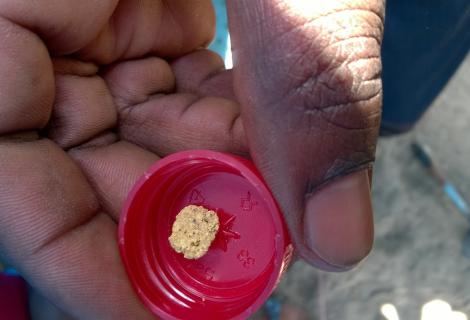
Extractives Governance Project
[ibimage==39596==image_content_fullwidth==none==self==null==]
The Extractives Governance project has been in existence since 2012. It started out as an advocacy vehicle for the oil and gas sector in Uganda, at the time when knowledge about this sector was very limited in the public spheres.
Over the years, there has been tremendous achievement regarding information generation and dissemination on extractive sector developments via the website and newsletters. The unit also added more reporting the mining sub-sector since the issues under the latter play out in the same way and the focus on oil, gas and mining completes the vital combination of core extractives sector activities in Uganda.
Uganda is blessed with about 6.5 billion barrels of oil in place and over 32 confirmed mineral ore deposits ranging from precious metals like gold to heavy ones like uranium. Although exploitation of the country’s extractive resources is a core objective in Uganda’s Vision 2040 and will drive the bulk of government’s spending and investment decisions in the next decades, proper management of the sector is faced with some challenges.
For example, the Presidency takes unilateral decisions over the sector, elite and exclusionist capture of business opportunities, and most importantly, the exclusion of young people and women in decision making processes relating to the sector among others. This shades a shadow on the ability of stakeholders to be in position of accessing durable benefits from their country’s oil, gas and mineral resources.
With funding from The Demographic Governance Facility (DGF), Ford Foundation and the Australian Department of Foreign Affairs and Trade (DFAT), the unit focusses on promoting transparent, constructive and well-informed public and policy debates. Specifically, it fosters proper governance and management of the extractives sector to ensure fair, prudent, accountable and beneficial outcomes to all Ugandan citizens, including the present and future generations.
One of the core undertakings is the information generation and dissemination regarding extractive sector developments plus governance and management aspects. This is achieved through two information platforms including a well updated website www.oilinuganda.org (which includes a mining section) and quarterly English newsletters that are distributed across the oil rich and mining areas and is translated into local languages to enable easy out-reach. Communities are also sensitised through community barazas, quizzes and debating competitions among schools and tertiary institutions, exchange visits/study tours to mining and oil rich countries, and national plus regional level policy dialogues and meetings among others. There are initiatives like training and exposures undertaken to build the capacity of stakeholders so as to be in good position of engaging the powers that be with good knowledge and understanding of how the extractive sector operates and what they need to do in order to access durable benefits from the same.
The unit’s target audiences include youth, women and men in oil rich and mining areas who require strong mobilization and organization to be able to firmly engage with the powers that be and ensure proper governance and management of the extractive sector, hence making good contribution towards attainment of social justice for all.
Going forward, the extractive governance unit shall target to strengthen the efforts shared above and ensure that stakeholders are enabled to continuously engage with and follow up processes in the extractive sector.
This will enable close monitoring of activities in the sector but also efficient identification of entry points and issues for follow up informed advocacy.